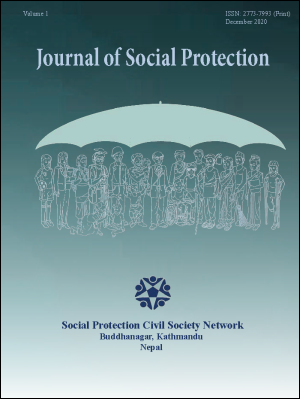Constraints on Applying Disability Identity Card: A Study from Roshi Rural Municipality from Midhill, Nepal
DOI:
https://doi.org/10.3126/jsp.v1i0.38213Keywords:
Distance, ID card, Lack of knowledge, Persons with Disability (PwDs), Social securityAbstract
Disability Identity Card (ID)is the key document issued for individuals with disabilities and qualifies a person as a recipient of disability allowance, a Social Security Programme of the Government of Nepal. Based on primary data collected using household questionnaire survey and in-depth interviews from Roshi Rural Municipality in Midhill Nepal, this paper aims to assess the socio-cultural backgrounds and major constraints in applying and acquiring the Disability ID card. Findings show that lack of knowledge about the ID card, its benefits and the application process are found to be the major constraints in acquiring it. Those who know about the application process have also been facing difficulties such as longer travel distance to district headquarters, lengthy and ambiguous processes, lack of money, and lack of supporting documents. The state restructuring and federalisation was found to be an opportunity in terms of the active roles that the local municipal government have played wherein more person with disability (PwDs) have approached for the card.
Downloads
Downloads
Published
How to Cite
Issue
Section
License
Copyright for articles is retained by the authors, with first publication rights granted to the journal.

